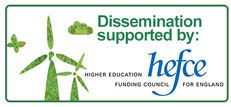Green Gown Awards – 2015 – Food and Drink
Food and Drink
This category includes all food, drink and hospitality aspects of institutions. It will be expected that standard credentials will usually be in place (such as Food for Life Catering Mark; free-range eggs; Fairtrade; seasonal and local food; Marine Stewardship Council; food waste etc.). It includes innovative campaigns across institutions that show creativity and consideration for how food and drink is procured and served and ultimately how behaviour change has been encouraged across staff, students and the broader community. In particular, judges will be looking for the whole life-cycle approach from concept to waste; promoting awareness (being informed); making informed choices (considering environmental and social issues); improving entire systems (by avoiding decisions that fix one problem but cause another) and informed selections (putting decisions in context with facts from all parts of the life-cycle).
Examples could include new and innovative ways of promoting food, the sourcing and provenance of food served on site, health and wellness focus across menu creation and provision or the design/layout of the hospitality space at large to cater for needs. It could cover reduction in food waste or a drive to educate and grow awareness of a specific key challenge within the institution.
In line with the broader sustainability agenda, judges will be keen to see evidence, if applicable, to the project on carbon reduction. However judges will consider how effective carbon reduction has been applied to the project in a broader sustainability context rather than awarding significant weighting to this element. Therefore, projects not containing this element are still encouraged to apply. Where applicable provide quantitative clear data to support claims being made and include overall tonnes of CO2 saved using the DEFRA/DECC conversion factors - http://www.ukconversionfactorscarbonsmart.co.uk/. Include, where appropriate, metrics such as: carbon savings relative to output/activity. This might be tCO2/student or tCO2/staff member and/or cost of a project relative to the amount of carbon that has been saved, i.e. £/tCO2.
Proudly supported by TUCO






 Except where otherwise stated, content on this site is
licensed under a Creative Commons Attribution 3.0 License.
Except where otherwise stated, content on this site is
licensed under a Creative Commons Attribution 3.0 License.
